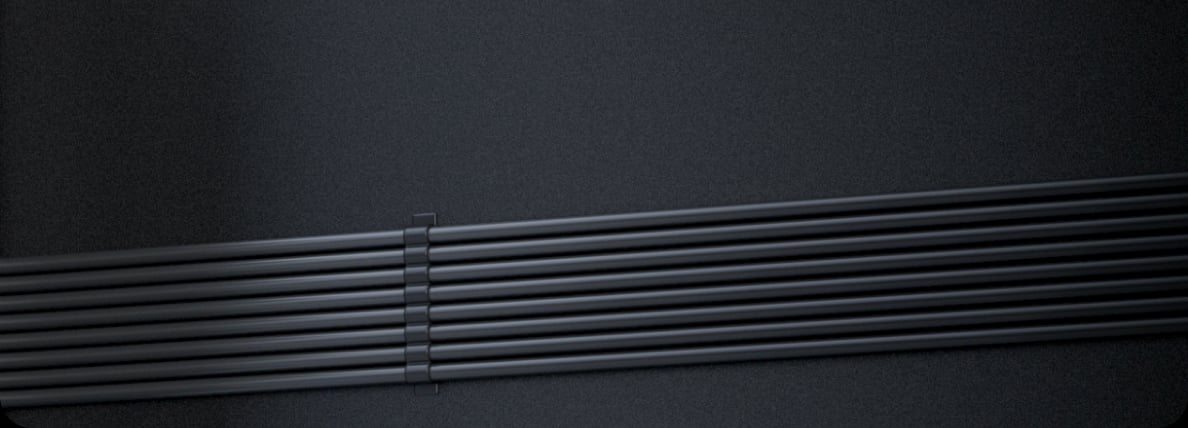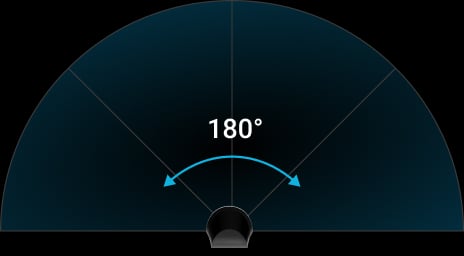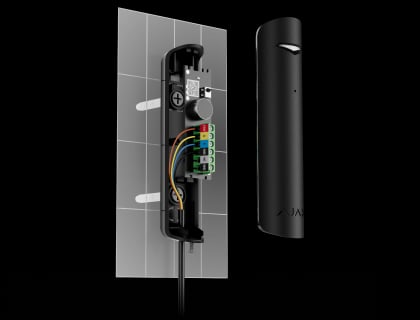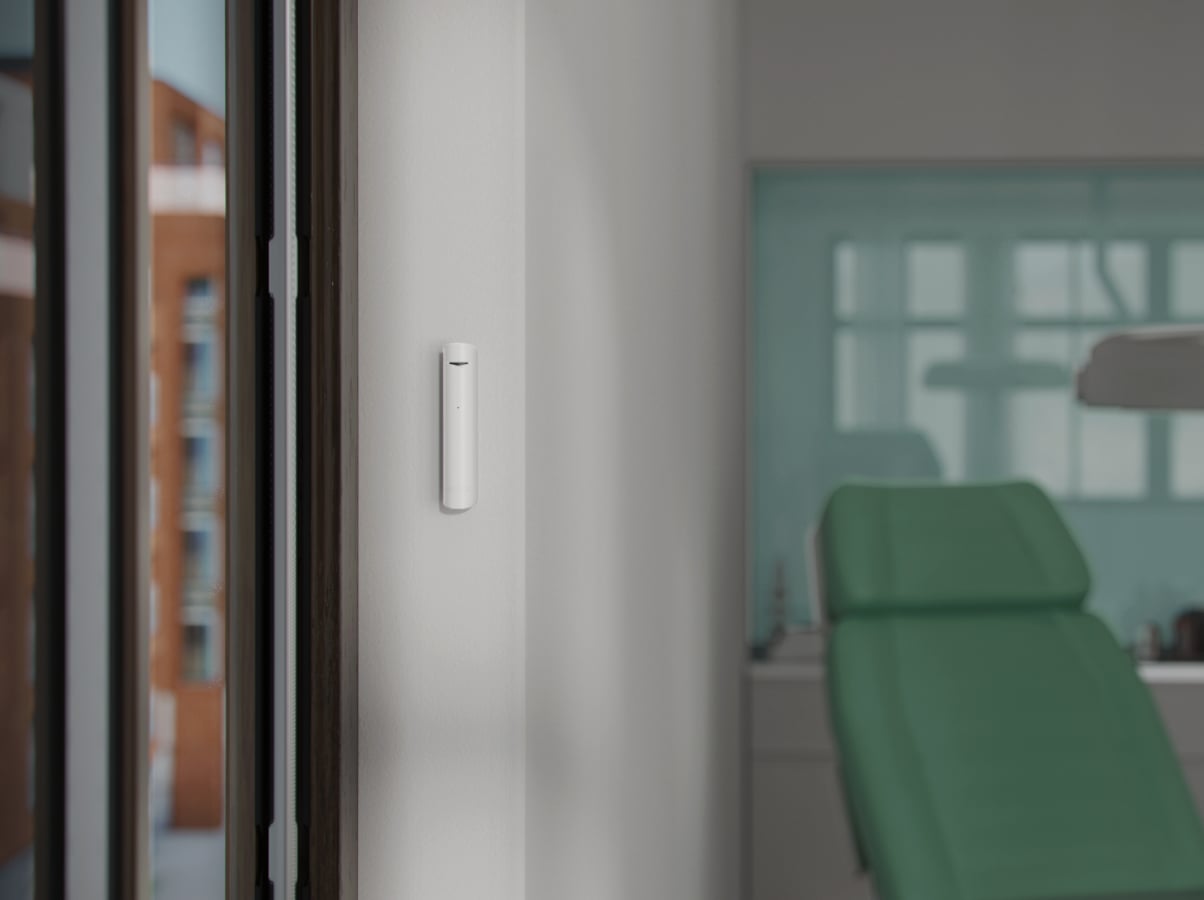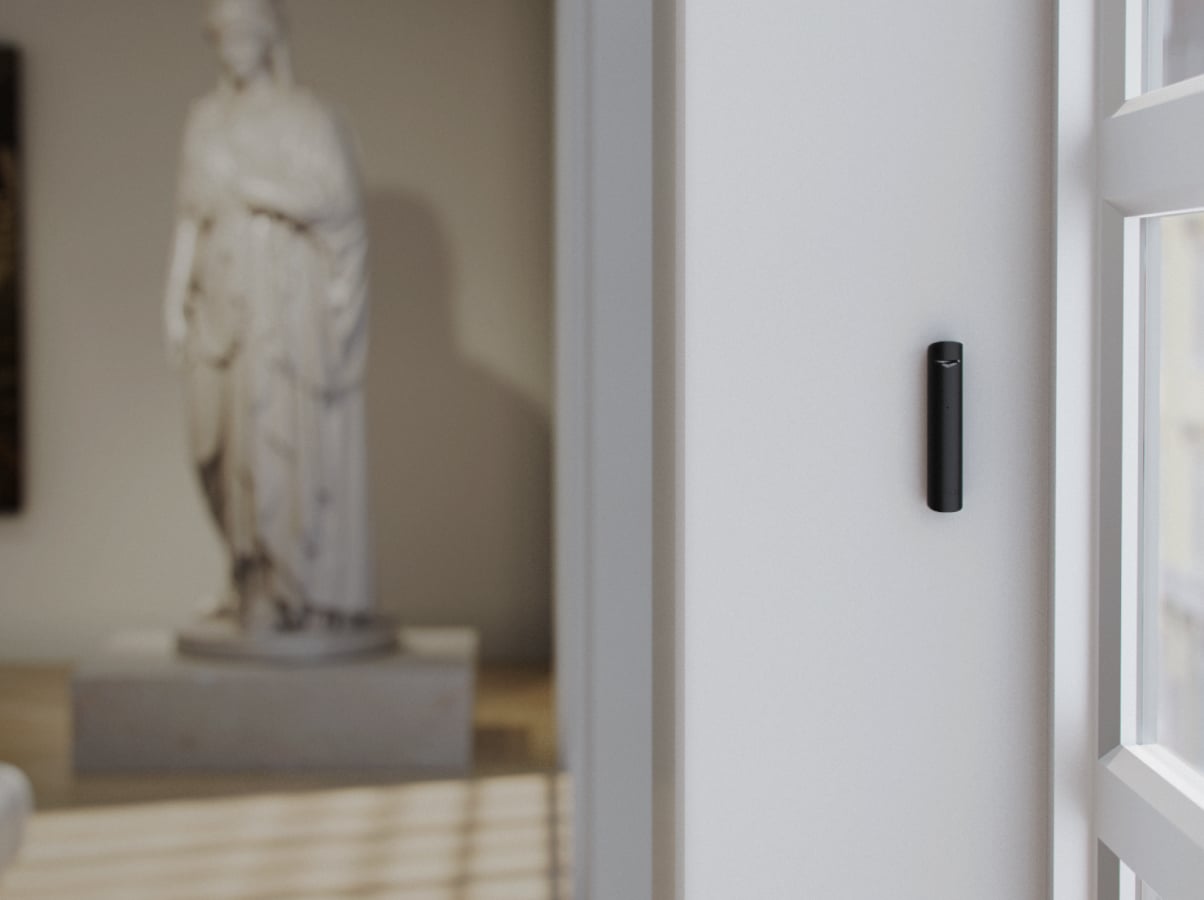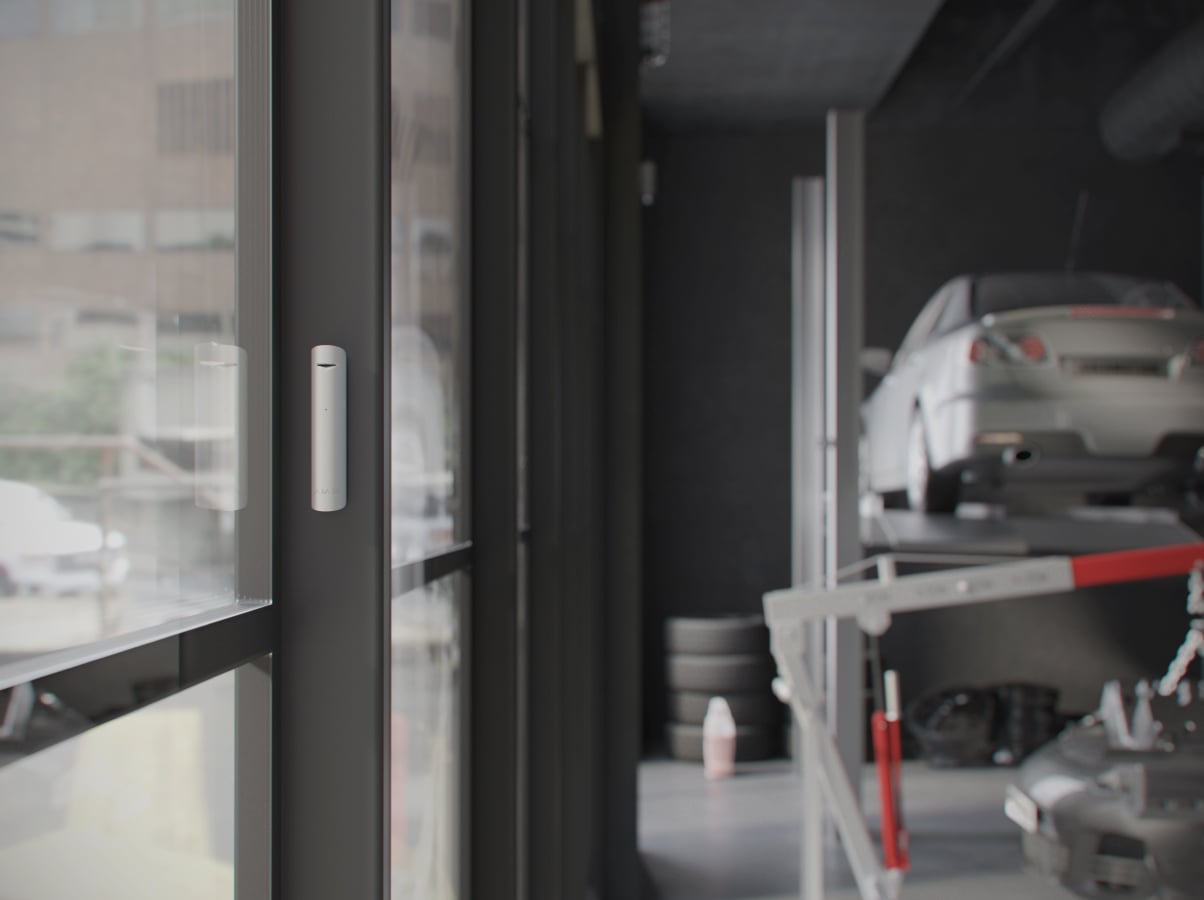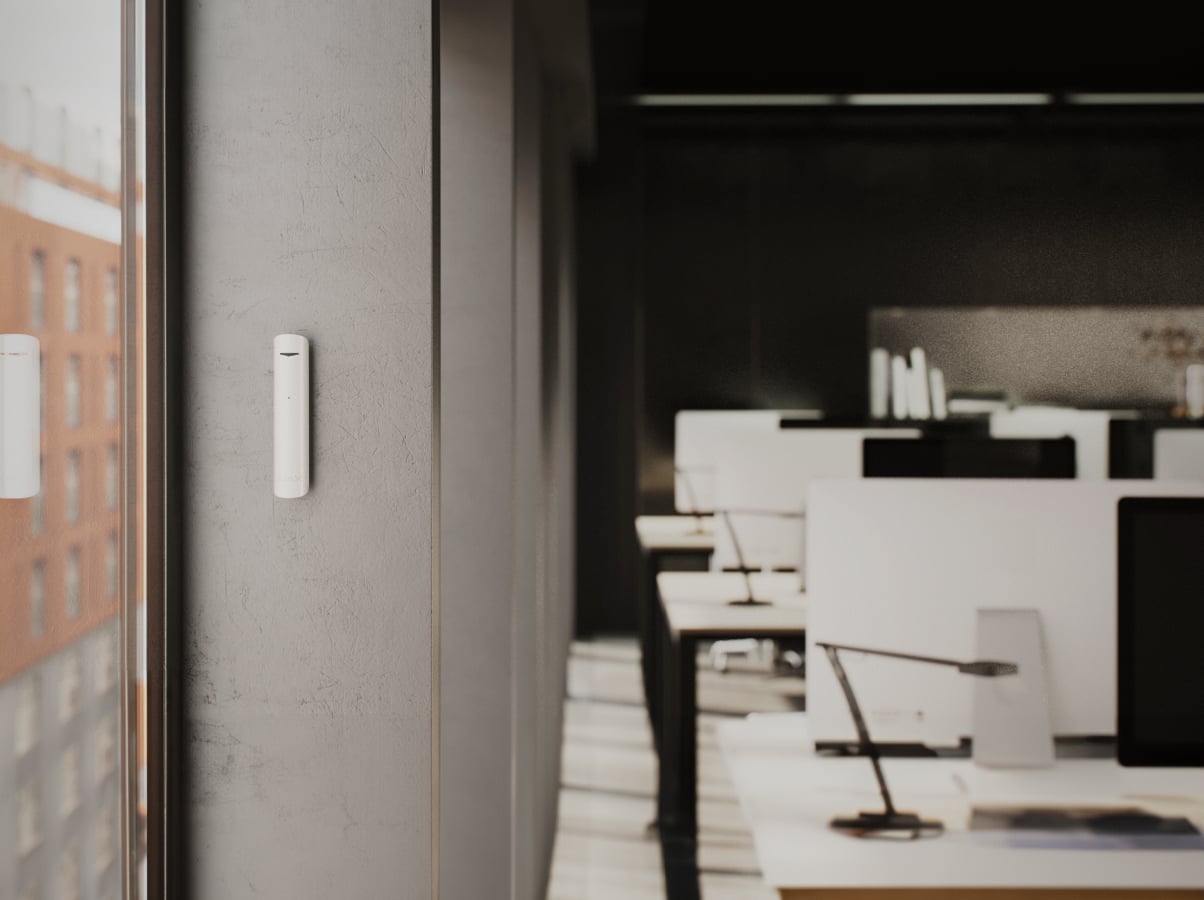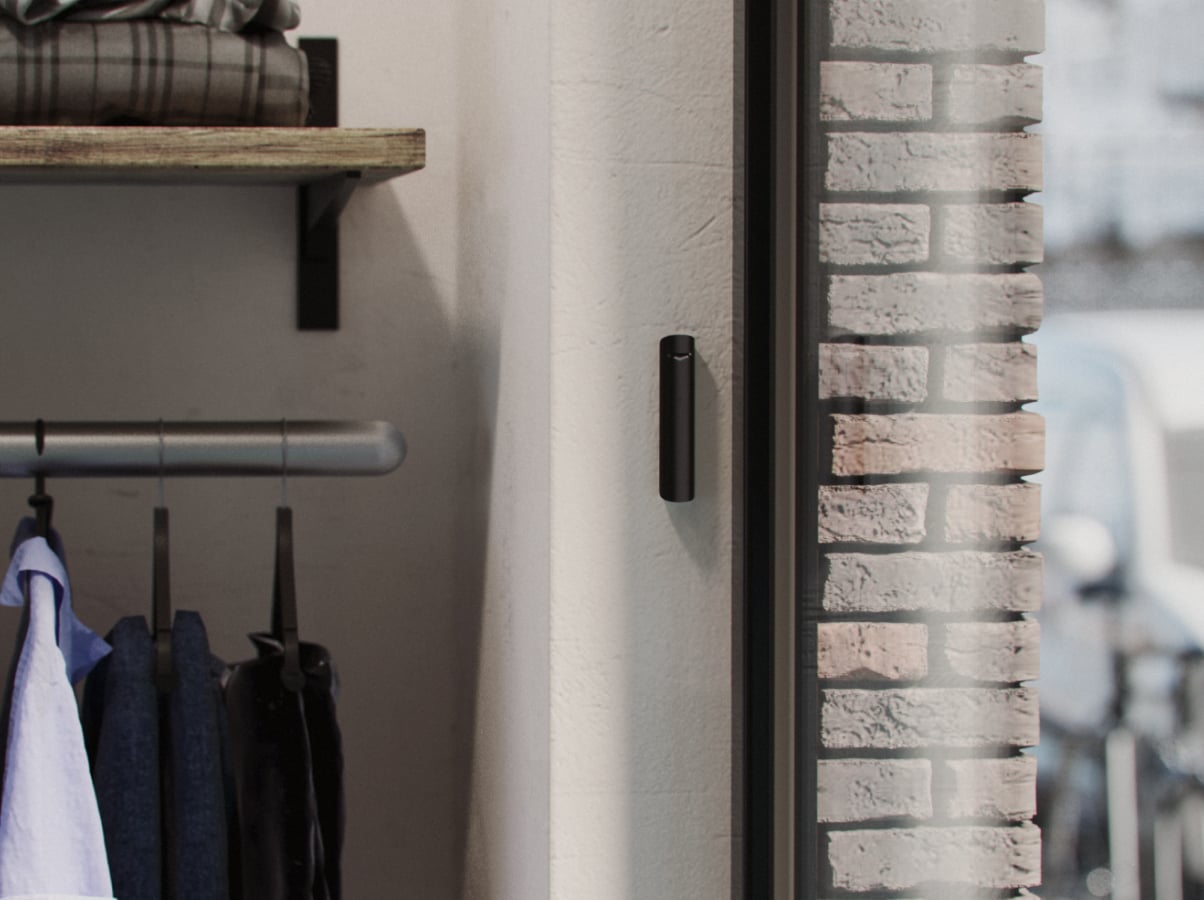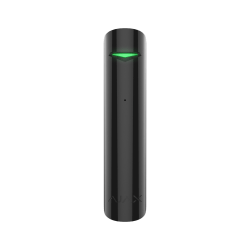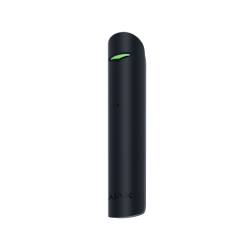
Superior GlassProtect Fibra
Wired glass break detector with a microphone
Product is not available in your region
Intruders can break silence, not security
Forget about the typical problem of glass break detectors — false alarms caused by barking dogs, traffic, water splashing, and extraneous noise. Superior GlassProtect Fibra has a unique DualTone digital algorithm designed to minimize false alarms. The detectorʼs microphone responds only to vibrations characteristic of the glass breaking sound. You can adjust one of three sensitivity levels and run the test to check if everything works properly.
Discover Superior GlassProtect Fibra
Introducing a wired glass break detector with a microphone
Watch on YoutubeKey features
In an Ajax system, you can combine devices of all product categories: Intrusion protection (both Superior and Baseline), Video surveillance, Fire and life safety, or Comfort and automation. Create the system to suit your needs and manage it in a single interface.
This is the device of the Superior product line. Only accredited Ajax Systems partners can sell, install, and administer Superior products.
Protect windows, valuables, and glass doors
Discover future-proof hardware

Electret microphone

Mainboard with terminals

Tamper to prevent enclosure dismantling
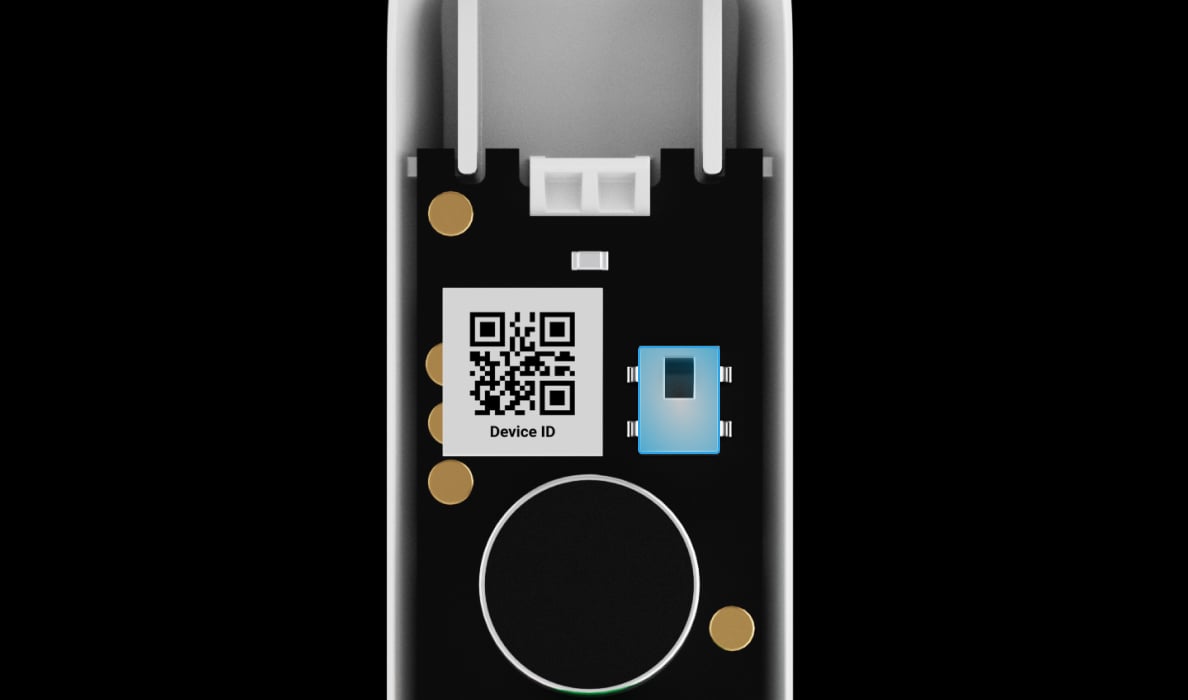
Tamper to prevent detachment from the surface
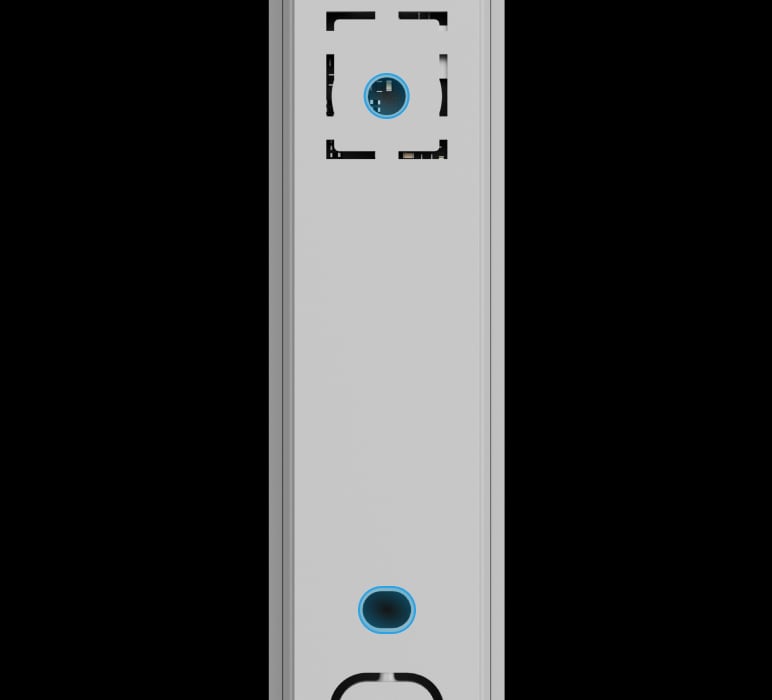
Enclosure with fixing points

Perforated parts for cable output either underneath the detector or through the wall

A screw to secure the enclosure
Responding to real threats only
Superior GlassProtect Fibra uses a sensitive electret microphone to detect the sound of glass breaking and a DualTone digital algorithm to prevent false alarms. The sound of glass breaking consists of a low-frequency hit sound and a high-frequency crashing sound of shattered glass. Both sounds must be detected within 1.5 seconds for the detector to report an alarm. This two-stage glass break detection decreases the risk of false triggering. Additionally, one of three sensitivity levels can be configured in the Ajax app, making it easy to adjust the detector according to the conditions of any object.

Note that Superior GlassProtect Fibra precisely detects the breaking of glass that is not covered with a film. If a window or showcase is protected with any film or anti-shock cover, the sound will be muffled, and the sensor will not trigger. In such cases, we recommend using detectors with a shock sensor, such as DoorProtect Plus Fibra, DoorProtect G3 Fibra, or DoorProtect S Plus Jeweller.
Easy integration with third-party detectors
Superior GlassProtect Fibra has terminals for connecting a third-party wired NC detector. This allows you to enhance system reliability with any NC detector, whether newly installed or already in place, such as motion, opening, or vibration detectors. For example, Superior GlassProtect Fibra enables you to integrate an existing third-party2 opening detector into the system.
Opening detector
Vibration detector
Motion detector
Fibra
Unique wired technology
An Ajax system uses secure two-way communication based on Fibra proprietary protocol. It features encryption and device authentication to prevent sabotage, spoofing, and data theft. Fibra lines are versatile and support connecting different types of devices to one line: sirens, keypads, and detectors with photo verification.

Up to 2,000 m of wired communication with a hub1 or a module that extends the Fibra line
One line for different types of devices
Photo delivery via Fibra line without interference
Protection against sabotage and spoofing
Energy efficiency as a priority
Fibra communication requires minimum power consumption, with the detectorʼs consuming only up to 0.036 W at its peak. Fibra operates on the TDMA principle. Each device has a short time frame to exchange data with a hub, and its communication module remains inactive the rest of the time. This significantly reduces power consumption and helps avoid interferences even when multiple devices communicate simultaneously.
Power consumption of up to 0.036 W
TDMA and power-saving modes

System supervision
All Ajax devices perform automatic self-diagnosis and report their states to the hub. Essential parameters, including tamper, communication, power supply, and sensor statuses, are continuously monitored. The Ajax Cloud server controls communication between the hub and Ajax apps, ensuring instant notifications for ARCs, security companies, and users. In case of any malfunction or communication failure, an engineer is informed immediately to provide necessary services.
Automatic device self-diagnosis with status report
Regular polling to display the current device state on apps
Instant maintenance notifications

Sabotage resistance
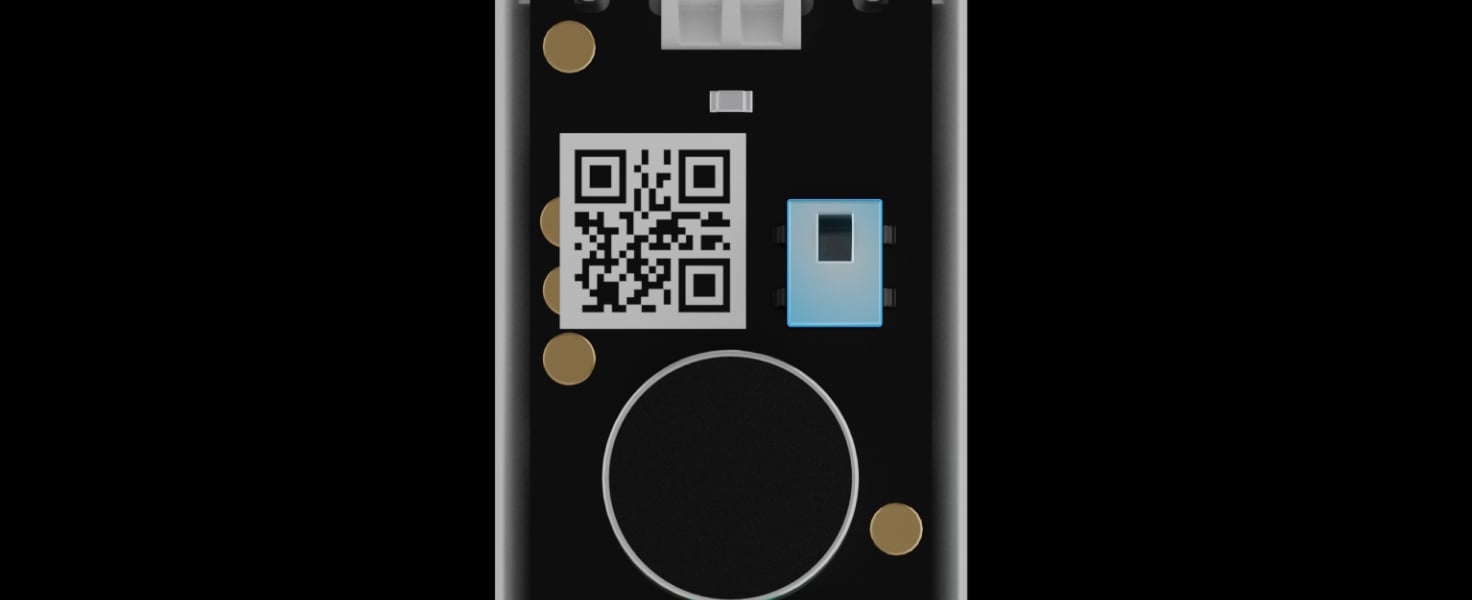
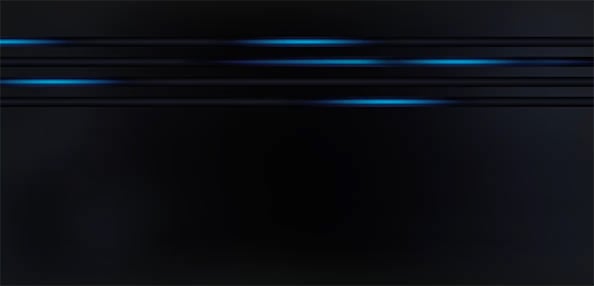
Protection against short circuits

Encryption of transmitted data

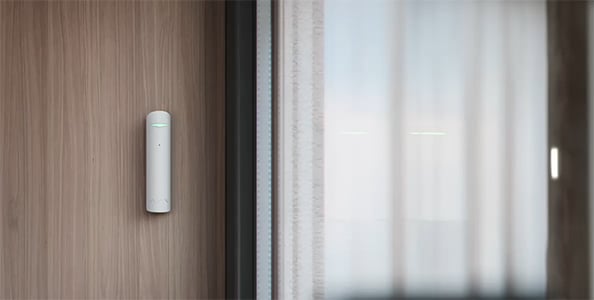

Event notifications
Next-level protection of Fibra line
Introducing LineProtect, the module designed to protect an Ajax hub and connected wired devices from sabotage when intruders cause overvoltage, short circuits, apply 110/230 V~, or use stun guns.
PRO is king
The myth about wired systems being difficult to install is busted. Ajax minimized an expensive, long, and dusty experience for PROs by developing an ultimate set of tools to make the process easy and flexible, from project design to client support and system maintenance. Everything for smooth and quick installation is included. Intuitive Ajax apps help make the device a part of the system, and each device can be reconfigured remotely at any moment. No programming required — everything is available out of the box.
Fibra power supply calculator
The online tool provides security engineers with detailed data on devices' power consumption, enabling easy pre-installation assessment of the wired system project. It helps design the project in real time, highlights problem spots, and offers solutions. Upon completion, results can be downloaded as a PDF file.
The installation kit includes all the necessary fasteners. The device board is removable, which makes the connection process more comfortable. For cable management, there are several perforated parts for cable routing.
Removable device board
All the necessary fasteners included in the installation kit
Holding screw to secure the device
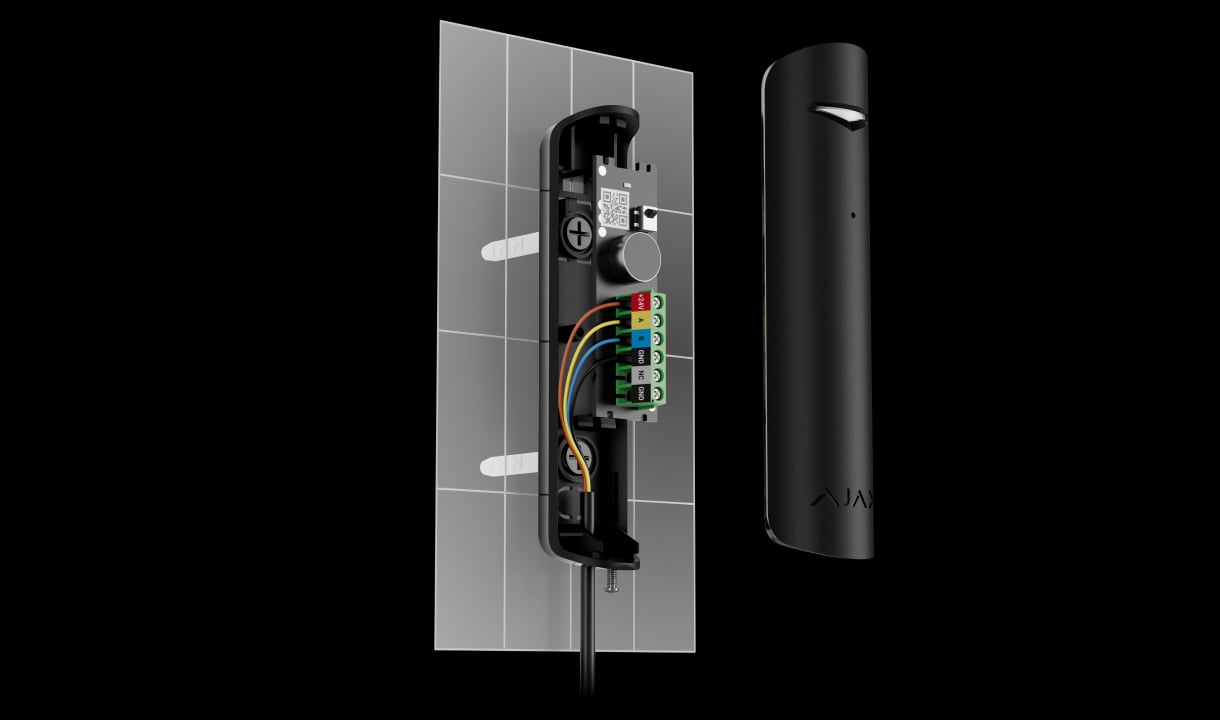
The device is paired with the hub automatically via Fibra line scanning. This tool is available in the desktop or mobile PRO apps. An installer only needs to name the device and assign it to the room and security group. The device can also be added by scanning the QR code or entering its ID manually.
Pairing with a hub via automatic line scanning or QR code
Device identification via triggering or LED indication
Optimal default settings to cover major requests

Intuitive Ajax apps provide remote set-up and testing with all device information from anywhere the Internet is available, on a smartphone or PC. An installer can remotely change the settings and provide services promptly without visiting the object.
Configuration and testing remotely or on site
iOS, Android, macOS, and Windows apps
Accounts for companies and installers

An Ajax system transmits alarms to the PRO Desktop monitoring app or any third-party CMS. The security company receives an alarm notification in less than a second. Notifications include all the necessary information: name of the device, time of the event, and the exact room where the device is located. The security company also receives photo or video verification, capturing the reason for the alarm.
Full addressability of connected devices
Instant in-app notifications
Alarm and event monitoring through Ajax PRO Desktop or third-party CMS
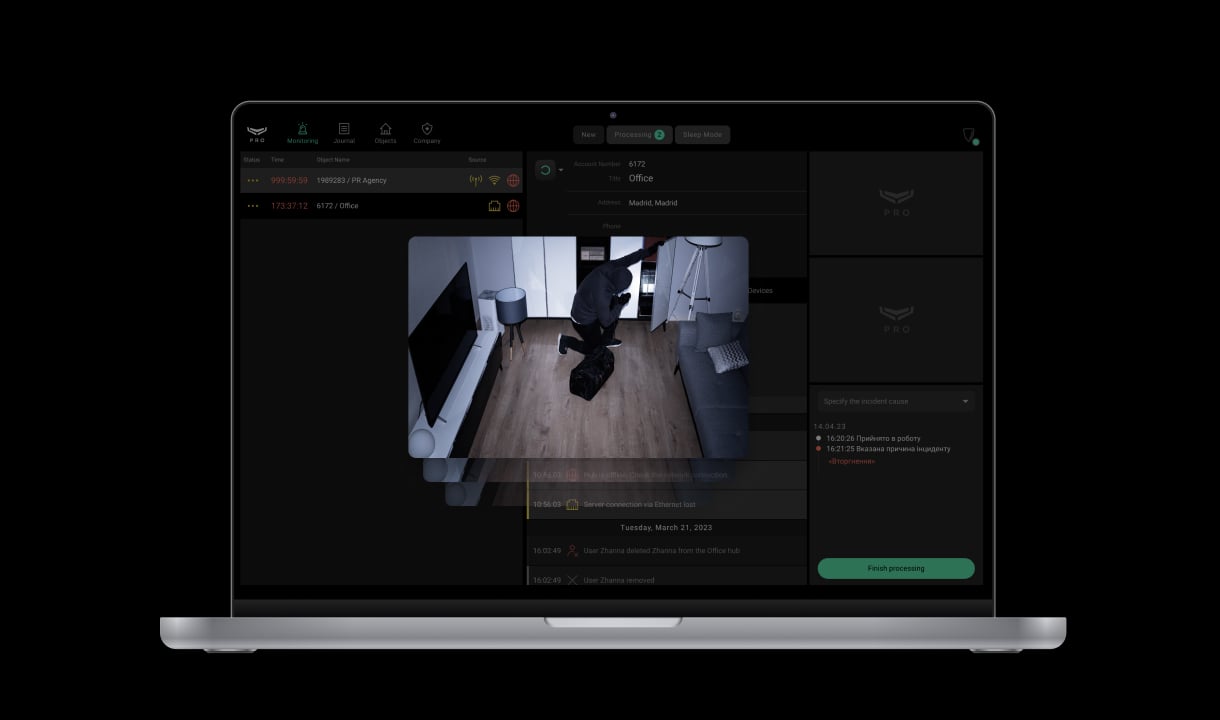
With U/UTP cat.5, 4 × 2 × 0.51 cable. Other cable types may have different values. Please use the Fibra power supply calculator to check the wired system project before installation.
Superior GlassProtect Fibra can not power the third-party detector. The power supply for this detector should be connected separately.
Technical information
Superior GlassProtect Fibra
More GlassProtect versions
Ajax product categories
In an Ajax system, you can combine devices of all product categories: Intrusion protection (both Superior and Baseline), Video surveillance, Fire and life safety, or Comfort and automation. Create the system to suit your needs and manage it in a single interface.
Glass break sensor for burglar alarm
The security of an object of any kind — housing, office, commercial building, involves the installation of a security alarm. It is able to protect the space from intrusions of strangers and theft of property inside. The security system includes an alarm control panel, and a number of security sensors, including a glass break sensor. Since it is easy to damage a window or door with a glass insert, and thus get inside the building, do not neglect the installation of detectors of this type.How glass break sensors work
The glass break sensor detects acoustic or mechanical vibrations in the detection zone and transmits an alarm signal to the alarm control panel (central panel). The control panel, in turn, activates the sirens connected to the system and informs the users and the security company about the incident.How to choose a glass break sensor for an alarm
The main difference between glass break sensors is the way information is transmitted from the sensor to the alarm central and vice versa. There are wired and wireless detectors.- It is advisable to install wired glass break sensors in rooms without repair, since this type of detector requires laying wires in the building. Also, wired sensors are used in large buildings with reinforced concrete walls and partitions, where radio communication can work less well.
- Wireless glass break sensors can be installed in finished repairs. This type of detector does not require wiring, data is transmitted to the alarm control panel via radio signal.
Superior GlassProtect Fibra wired glass break detector from Ajax
The Superior GlassProtect Fibra wired glass break detector is intended for installation inside buildings, close to windows or doors with glass elements. Superior GlassProtect Fibra is a glass break detector that works in the Ajax security system. The detector communicates with the control panel using the secure Fibra protocol. The communication range of the sensor with the control panel is up to 2 km when connected via U/UTP cat.5 twisted pair cable. The Superior GlassProtect Fibra sensor works with the Hub Hybrid Alarm Central and cannot be connected to other hubs, radio signal repeaters or third-party control panels.The principle of operation of the wired Superior GlassProtect Fibra glass break detector
The Superior GlassProtect Fibra tire glass break detector detects glass breakage using a pre-installed electret microphone. The detector's microphone responds to sound vibrations that are characteristic of the sound of glass breaking. After the sensor detects a glass break, it immediately transmits an alarm signal to the security system control panel (central). The control panel, in turn, starts scripts, turns on sirens and informs users and the security company about the incident. The wired glass break detector uses a two-stage algorithm to filter out false alarms. In order to register a break, the detector must record a dull sound from a blow in 1.5 seconds, and then a sonorous sound of fragments falling to the floor. Thanks to this principle of operation, the glass break detector does not react to the sound of barking dogs or passing cars. It is important to remember that the Superior GlassProtect Fibra wired break sensor detects glass breakage without film. If the window or showcase is covered with sunscreen, anti-shock and other types of film, the sound will be muffled, and the sensor will not work. To fix this type of glass break, use sensors with an impact sensor: DoorProtect Plus Fibra or DoorProtect Plus.How the Superior GlassProtect Fibra security glass break detector communicates with the alarm central
For data and alarm transmission, the glass break detector uses a two-way Fibra data bus protocol. This technology provides fast and reliable communication between the central security system and other devices. Thanks to the bus connection method, Fibra delivers information on time, even if 100 devices are connected to the system. Fibra technology encrypts the device on every connection to prevent sensor tampering and tampering. Thanks to the work based on the Fibra protocol, the control panel's sensors are regularly polled with a frequency of 12 to 300 seconds to control communication with alarm devices and display their statuses in real time in Ajax applications.Installation of a wired Superior GlassProtect Fibra glass break detector for alarms
Superior GlassProtect Fibra alarm breaking sensor is a device of the Fibra line of wired devices. Only accredited Ajax partners can install, sell and administer these devices. When choosing a place to install the Superior GlassProtect Fibra wire break sensor, it is important to pay attention to:- cable length for sensor connection;
- Fibra signal level;
- glass break detection zone;
- no obstructions between the sensor and nearby glass surfaces.

